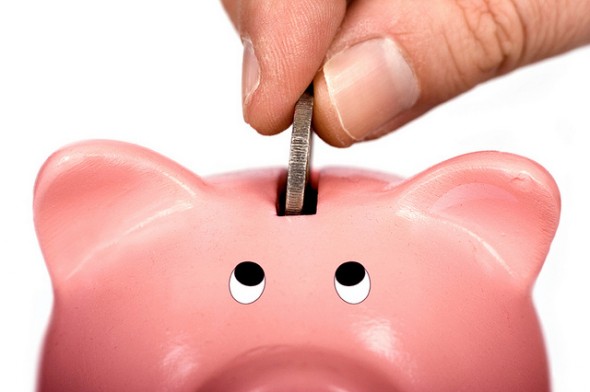You’ve probably heard of an emergency fund, but do you have one? Most of the financially-savvy people in this world have gotten good at budgeting for everyday predictable expenses, but what about the leaky roof that finally caves in and needs to be replaced? Or the old car that completely dies on you? Emergencies like this can set your finances back years if you’re not prepared. Having an emergency fund is how you prepare. Leaky roofs and old cars are things that most people like to hope will never happen to them, but when they do, you need to be ready. Here are some common reasons why you should have an emergency fund.
A financial advisor can help you determine the right financial strategy to balance your savings with your expenses.
1. Avoid Credit Card Debt
A credit card is often the easiest way for most people to access cash in a pinch. This might be okay for a short period of time, but if you are carrying a balance for a long time, your interest rates can significantly increase the total amount you spend. A decent emergency fund will allow you to steer clear of credit card debt in the event of a financial disaster.
2. Take Time Off Between Jobs
Whether you’re fired, let go or quit voluntarily, being jobless can be nerve-wracking. There is something about that regular paycheck that gives us security and peace of mind. Even if you are entitled to unemployment, it won’t come close to replacing your income. An emergency fund won’t replace your income, either, but it can help bridge the gap.
Additionally, it’s always nice to be able to take a short hiatus in between employment stints. If you find yourself living paycheck to paycheck, you won’t have that luxury. Instead, you’ll have to go straight from one job to the next. Having money in your reserves will allow you to recharge your batteries while you wait for the perfect opportunity instead of taking the first position that becomes available.
3. Can’t Shake That Cold

Most of us have health insurance, but believe it or not, there’s a lot that it won’t cover, such as lost wages and benefits. The last thing you want to worry about when you’re sick is your finances. Having an emergency fund will allow you to get the best treatment possible since some hospitals require upfront payment. Even if your insurance eventually foots the bill, you do not want to get mired in bureaucracy when your focus should be on getting better.
4. Reduce Stress
One of the biggest sticking points for most couples is money. An emergency fund will not solve everything, but it can definitely help by providing a little extra peace of mind. Having some money in your savings will give you the flexibility to spend some more money when you need it and save more when you don’t.
This doesn’t just go for married couples. Even if you are single, an emergency fund should be used as a safety net against unexpected financial catastrophes.
5. Maintain That House
Owning a home can be a great joy for most Americans. Things like your mortgage and property tax are generally fixed expenses throughout the life of the home, but there are other things that can continually cost you money. isIt’s important to be prepared for when things break so you can pay for repairs as needed.
How Much Should You Keep in an Emergency Fund?
When determining how much to keep in your emergency fund, consider your monthly expenses and how long you may need to cover them without regular income. A typical recommendation is to save three to six months’ worth of necessary costs, such as rent, groceries, utilities, insurance and transportation. If your income varies or your job isn’t secure, saving closer to six months’ worth can provide added flexibility during tough times.
To calculate your target savings amount, total your essential monthly expenses and multiply that number by how many months you want to cover. For example, if your basic monthly costs are $2,500, then a five-month emergency fund would be $12,500.
Remember, you don’t have to save this all at once, setting aside a small amount regularly can help you build your emergency fund over time.
Below is a table showing how much you might save, based on different monthly expense levels:
| Monthly Expenses | 3 Months | 4 Months | 5 Months | 6 Months |
| $2,000 | $6,000 | $8,000 | $10,000 | $12,000 |
| $2,500 | $7,500 | $10,000 | $12,500 | $15,000 |
| $3,000 | $9,000 | $12,000 | $15,000 | $18,000 |
| $3,500 | $10,500 | $14,000 | $17,500 | $21,000 |
This table can help you estimate how much to save based on your situation. Park your emergency fund in a savings account where easy to access but separate from everyday spending.
Bottom Line

An emergency fund is one of the most important tools for maintaining financial stability. It offers protection against unexpected expenses, provides flexibility during life transitions, and reduces the likelihood of going into debt when the unexpected happens. Whether it is job loss, medical bills or sudden home repairs, having money set aside can help you handle emergencies with less stress and more control. Building and maintaining an emergency fund is a simple but powerful step toward long-term financial resilience.
You can also work with a financial advisor to develop a long-term financial savings strategy for your emergency fund.
Emergency Fund Tips
- Finding a financial advisor doesn’t have to be hard. SmartAsset’s free tool matches you with vetted financial advisors who serve your area, and you can interview your advisor matches at no cost to decide which one is right for you. If you’re ready to find an advisor who can help you achieve your financial goals, get started now.
- The best checking accounts pay some of the highest rates and often do away with costly fees. See SmartAsset’s list of the best checking accounts to find one that’s right for you.
Photo credit: flickr, ©iStock.com/Squaredpixels, ©iStock.com/laflor
